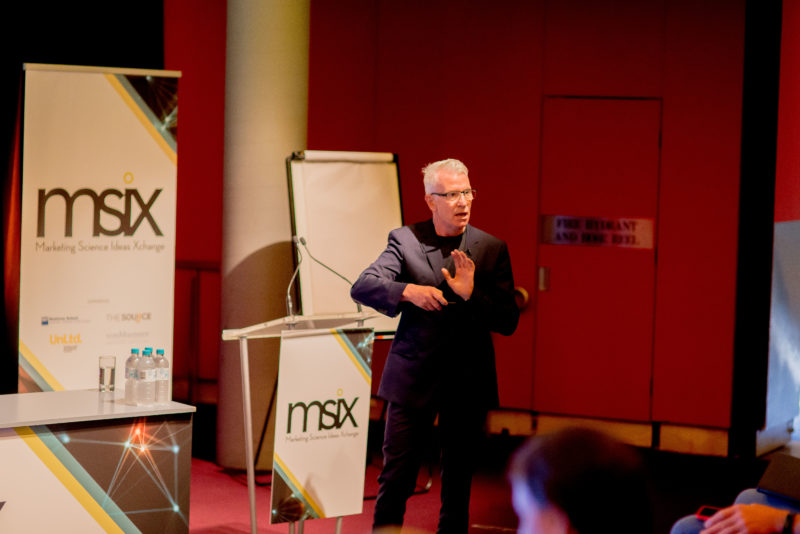Advertising is failing because it is a ‘lawless game of chance’ says market research boss
Advertising is a “lawless game of chance” according to the CEO of market research firm Forethought.
Speaking at Mumbrella’s Marketing Science Ideas Xchange, Ken Roberts, CEO of Forethought, said 99% of advertising failure is because marketers aren’t rationalising reasons to deliver an advertisement.
“Why is so much advertising failing? The reason is because it’s just a lawless game of chance indiscernibly better than gut instinct,” Roberts said.



Always a bloke in a suit telling creatives to do better
>Brand equity is fictitious.
>XXXX has great brand equity.
???
Yes, you’re wasting time focusing on ‘made up’ brand equity measures, and instead, should focus on the non-made, ’empirically’ great Forethought measures. This is essentially why these conferences are a waste of time
So restraining the already restrained creative minds will produce better ads and results? Surely the problem is that marketers are constraining creative thinking too much. There’s too much caution and paranoia from client side to rock the boat and produce something adventurous that will stir emotion, too many ads are boilerplate and safe.
Measuring emotion, attention and reaction would be major breakthroughs but the tech isn’t quite there yet. I think brave brand managers and creatives will deliver emotion, but creatives need the free license to deliver that without fear it will be watered down for conservative mindsets. Fear is a barrier to this whole ecosystem, not a solution.
Constraint is valuable to a point, but it quickly reaches that point beyond which it becomes too concentrated, too high pressure, and even destructive. Great creativity is often found in a small and simple arena, which is not the same thing as constraint or fencing, it is a small arena which is found within an infinite one. The problem is that the process requires trust, lots of it. It is always risky, if it isn’t, then it usually isn’t any good. the problems arise when there is a lack of trust from clients and from other influences.
It takes courage and trust to accept that reckless abandon used sparingly is an essential component, and that failure is a natural phenomenon.
People like him have killed the creative ad industry.
He speaks the truth
Another example of complicated academic waffle and decades out of date with what agencies desperately needed more than anything else in the mid-sixties [and still now] – a quality multi-skilled specialist who became known as the planner – ideally skilled in marketing, market research, intelligence, planning and advertising with a dash of flair and imagination. Its world-wide adoption speaks volumes for its huge success and certainly in Australia the quality marketing decisions and hugely successful campaigns that resulted, See originplan.com.
I was in attendance and it was interesting discourse that was regrettably conveyed with such arrogance. Mr Roberts was presumptuous that creatives would dismiss market research. Could it be we are dismissive of market research that comes in with such an aggressive and adversarial position, apparently unable to be put under scrutiny itself. Oh wait I forgot it was scientifically validated which must mean it is Gospel.
I would strongly urge Mr Roberts to take a more collaborative empathetic approach with the creative digital and media industries.
Was speaking at MSIX identified by MR Roberts as a scientifically validated driver for market research managers to employ Forethought as a vendor?